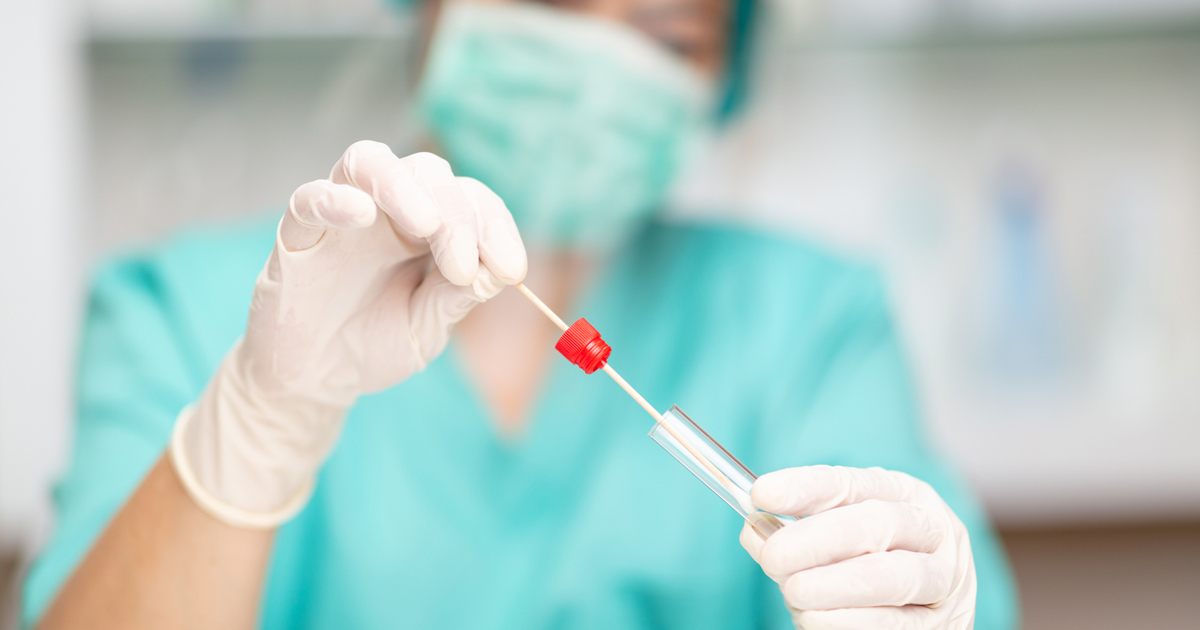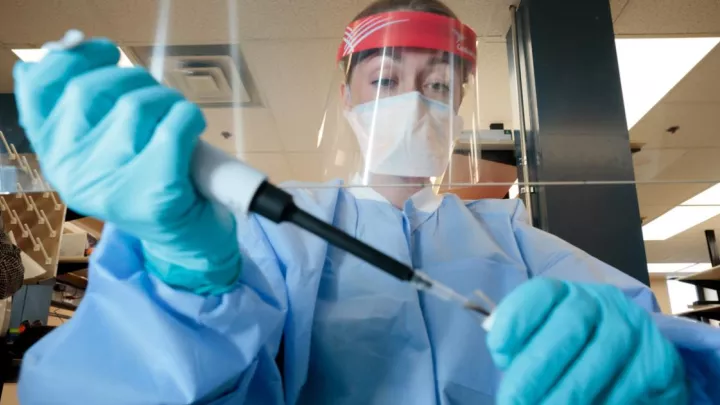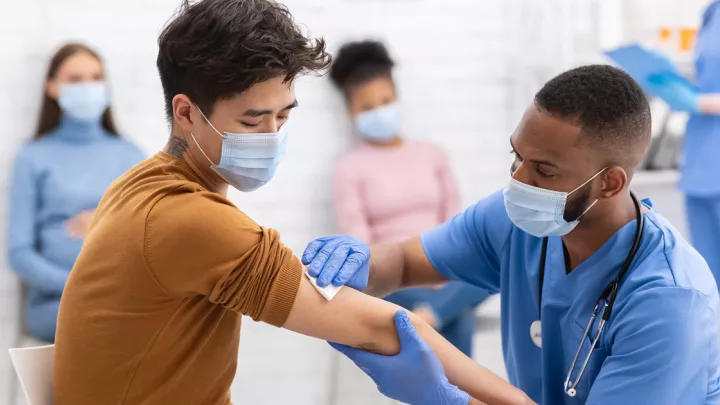When and where to get tested for COVID-19

The delta variant has caused an uptick in cases, resulting in another wave of COVID-19. People can spread the delta variant two days before they have symptoms. That's why testing is crucial to stopping the spread of COVID-19. Read on to see when and where you can get tested.
If you have questions about your unique situation, please schedule an appointment with your primary care provider.
Where can I and my family get free testing now that Test Nebraska is done?
Nebraska Medicine offers polymerase chain reaction (PCR) tests for symptomatic individuals, which is covered by most insurance plans. Get tested for COVID-19.
You can also get tested at a Douglas County testing location. Many sites offer PCR tests for free, but there is typically a fee for antigen or rapid tests. Currently, Charles Drew Health Center, CVS, Hy-Vee, Kohll's, OneWorld and Walgreens all provide free COVID-19 PCR tests. First, make an appointment for testing either online or over the phone. Most sites will ask for your insurance information. If you don't have insurance, be sure to make an appointment at a free testing site.
As a vaccinated individual, what is the protocol if I develop mild COVID-19 symptoms?
Get a test to see if you have COVID-19. Breakthrough infections (in fully vaccinated individuals) are rare, but they do occur.
If you test positive, you should self-isolate until both of these conditions are met:
- At least 24 hours have passed since your last fever, without the use of fever-reducing medications
- At least 10 days have passed since your symptoms first appeared
If I'm unvaccinated, what should I do if I had close contact with someone who has COVID-19?
The CDC defines close contact as being within 6 feet of someone with COVID-19 for 15 minutes or more. If you've had an exposure, you can either:
- Remain at home (quarantine) until 14 days after your exposure, or
- Get tested at day 10. If it's negative, you can exit quarantine
If I'm fully vaccinated, what should I do if I had close contact with someone who has COVID-19?
Fully vaccinated people should get tested three to five days after an exposure, even if they don't have symptoms.
- If the test is negative (and you don't have symptoms), you don't need to quarantine, but you do need to wear a mask in public for 14 days
- If the test is positive (or you start having symptoms), quarantine for 10 days. Get tested again on day 10. If negative, you can exit quarantine. If positive, quarantine until it's been 14 days since your exposure
What if I've been in contact with someone who was around another person with known COVID-19?
If you are a secondary contact of someone who has been diagnosed with COVID-19 (for example, your co-worker was exposed to a patient with COVID-19) and you are not experiencing any respiratory symptoms, you do not need to be screened for COVID-19.
You are encouraged to self-monitor by being aware of any new respiratory symptoms and checking your temperature for fever. Call your physician for directions should any symptoms develop.
How do you get tested to see if you have the delta variant?
Testing does not determine what kind of variant you have. PCR tests and rapid tests both give either a positive or a negative result.
- Detected means the test found SARS-CoV-2, the virus that causes COVID-19
- Not Detected means you do not have COVID-19 – but you may have another virus that causes respiratory illness
Public health laboratories can determine which variant you have through whole genome sequencing. These tests are performed for epidemiological purposes only and are not reported to the patient. As of this writing, the majority of new COVID-19 infections are the delta variant.






